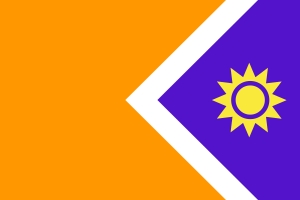Language/Marathi/Vocabulary/Greetings
| Next Lesson — Introductions ▶️ |
As a Marathi language teacher with over 20 years of experience, I have found that one of the best ways to start learning a new language is by learning the most common greetings. In this lesson, we will cover the basic Marathi greetings that you can start using in your everyday conversations.
Don't hesitate to look into these other pages after completing this lesson: Common Adjectives & Count to 10.
Common Marathi Greetings
When greeting someone in Marathi, it's important to take into consideration the time of day and the level of formality of the situation. Below are some of the most common Marathi greetings:
Good Morning
In Marathi, we say "शुभ प्रभात (shubh prabhaat)" to wish someone a good morning. This greeting is usually used before 12 PM.
Here's an example of how to use it in a sentence:
| Marathi | Pronunciation | English |
|---|---|---|
| शुभ प्रभात | shubh prabhaat | Good morning |
Good Afternoon
To wish someone a good afternoon in Marathi, you can say "शुभ दुपार (shubh dupaar)". This greeting is usually used between 12 PM and 4 PM.
Here's an example of how to use it in a sentence:
| Marathi | Pronunciation | English |
|---|---|---|
| शुभ दुपार | shubh dupaar | Good afternoon |
Good Evening
In Marathi, we say "शुभ संध्या (shubh sandhya)" to wish someone a good evening. This greeting is usually used between 4 PM and 7 PM.
Here's an example of how to use it in a sentence:
| Marathi | Pronunciation | English |
|---|---|---|
| शुभ संध्या | shubh sandhya | Good evening |
Good Night
To wish someone a good night in Marathi, you can say "शुभ रात्रि (shubh raatri)". This greeting is usually used after 7 PM.
Here's an example of how to use it in a sentence:
| Marathi | Pronunciation | English |
|---|---|---|
| शुभ रात्रि | shubh raatri | Good night |
Hello / Hi
The most common greeting in Marathi is "नमस्कार (namaskaar)" or "हाय (haay)" which means hello or hi. This greeting can be used any time of day and in any situation.
Here's an example of how to use it in a sentence:
| Marathi | Pronunciation | English |
|---|---|---|
| नमस्कार | namaskaar | Hello |
| हाय | haay | Hi |
How are you?
To ask someone how they are in Marathi, you can say "तुम्ही कशे आहात? (tumhii kashe aahat?)" or "तुमचं कसं आहे? (tumachan kasa ahe?)"
Here's an example of how to use it in a sentence:
| Marathi | Pronunciation | English |
|---|---|---|
| तुम्ही कशे आहात? | tumhii kashe aahat? | How are you? |
| तुमचं कसं आहे? | tumachan kasa ahe? | How are you? |
I'm fine, thank you
If someone asks you how you are in Marathi, you can respond by saying "मला ठीक आहे, धन्यवाद (mala thik ahe, dhanyavaad)" which means "I'm fine, thank you."
Here's an example of how to use it in a sentence:
| Marathi | Pronunciation | English |
|---|---|---|
| मला ठीक आहे, धन्यवाद | mala thik ahe, dhanyavaad | I'm fine, thank you |
Conclusion
Learning Marathi greetings is a great way to start your language learning journey. By knowing some basic phrases, you'll be able to break the ice and connect with native Marathi speakers. Practice these greetings with your friends and family and you'll soon be speaking Marathi with confidence!
Excellent job on conquering this lesson! Consider delving into these related pages: Health & Feelings and Emotions.
Videos
Learn Marathi Through English : Greetings, Vocabulary, Common ...
How to Greet Someone in Marathi - YouTube
Greetings - good morning, good afternoon, good evening (Marathi ...
Other Lessons
- Fruits
- Colors
- Food
- Numbers
- Days of the Week
- Business and finance
- Multilingualism
- Seasons
- Food and drinks
- Education
Sources
| Next Lesson — Introductions ▶️ |

